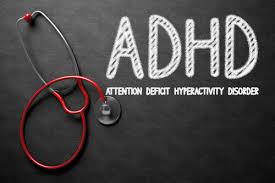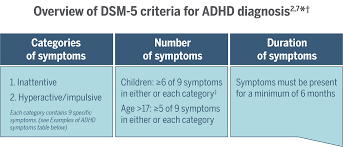ADHD and Offending: ADHD Assessments for Lawyers
We provide expert psychologist reports for solicitors and barristers whose clients with ADHD are involved in legal proceedings. These reports are helpful in criminal, employment, personal injury, and family cases where ADHD is a relevant issue in understanding the behaviour of the claimant, defendant, or respondent. Reports are also used to ensure that individuals with ADHD have a more level playing field in legal proceedings. The necessary reasonable adjustments (special measures) are implemented to ensure that litigants with ADHD can participate more fully in legal proceedings. We also work with employers and employees to ensure that reasonable adjustments are made for people with ADHD in employment and education, a legal right under the Equality Act 2010 for individuals with ADHD.
ADHD Diagnostic Assessments for the Legal Profession
We can provide ADHD reports for court within seven days or less. We also assess whether a diagnosis of ADHD has been adequately made and whether there are grounds to conclude that the individual with the diagnosis of attention-deficit hyperactivity disorder does not meet the diagnostic criteria for the condition.

ADHD and the Law
Attention-deficit hyperactivity disorder (ADHD) is a disability under the Equality Act 2010; this means that reasonable adjustments must be made for people with ADHD in education, employment and the legal system. People with ADHD who are discriminated against (directly or indirectly) because of their neurodiverse condition have a right to take legal action by making a claim in a Court or Tribunal because of that discrimination.
ADHD and the Criminal Justice System
There is a well-established relationship between ADHD and offending. Defendants with ADHD are significantly overrepresented in the criminal justice system. Approximately 1 in 4 people in the prison population has a diagnosis of ADHD. This equates to greater than eight times the rate of prevalence of ADHD in the population at large. Young people with ADHD are also disproportionately represented, with there being five times more young people with ADHD in prisons and approximately ten times more adults with ADHD in prisons. Other estimates suggest that 45% of young offenders have ADHD, and some 24% of adults have ADHD in prisons.
The Ministry of Justice Prison Strategy White paper emphasises the need to understand the reasonable adjustments in special measures needed for people with ADHD in the courts, the stations, and prisons better. These concerns are articulated in a joint inspection report entitled "Neurodiversity in the Criminal Justice System."
Why Are People with ADHD Overrepresented in the Criminal Justice System?
Many people with ADHD act on the spur of the moment impulsively without weighing up the consequences of their actions, and this sometimes results in criminal activity. Additionally, individuals with ADHD frequently find it challenging to regulate their emotions; consequently, they can be susceptible to violent outbursts. There is a relationship, therefore, between attention deficit hyperactivity disorder "ADHD" and a greater propensity to be engaged in criminal behaviour as a result of high levels of impulsivity and difficulty with self-control, both factors are at the heart of a diagnosis of ADHD. Furthermore, individuals with ADHD are often involved in greater levels of risk-taking behaviour and find it more challenging to foresee the consequences of their actions and plan. These characteristics frequently increase the probability of criminal conduct and also adversely affect the ability of individuals with ADHD to give evidence in civil, family, and employment law proceedings.
The Royal College of Psychiatrists has reiterated the difficulty that individuals with ADHD face in managing their executive function and the problems that they have in delay in reward, which frequently explains why individuals with ADHD are involved in thoughtless and impulsive crime. Research studies with young people who have ADHD have highlighted the difficulties that they have in being able to foresee and understand other people's emotional responses. These factors have been shown to be closely associated with the risk of offending. These difficulties are exacerbated by the strong relationship of ADHD with conduct disorder and dissocial personality disorder.
ADHD and Offending
Many individuals with ADHD become involved in the legal system because of problems they experience as children and teens, which include poor academic performance, low school attendance records or dropping out of education and responding with defiance and aggression to people in authority. Proportionately higher unemployment rates and also involvement with drugs and other substances tend to be proportionately higher in this group of individuals. There is a strong relationship between these factors and legal difficulties culminating in the involvement in the judicial system.
ADHD Often Occurs With Other Conditions, Which Leads To A Higher Chance Of Offending
Defendants with ADHD tend to have co-occurring problems such as depression, anxiety, conduct disorder, substance abuse personality disorder and/or oppositional defiant disorder. They become exposed to the criminal justice system at an early and have higher rates of reoffending. They show a higher propensity to make false confessions and are more likely to be engaged in conflict and emotional disturbances while in custody. The Adverse Childhood Experiences Study indicated that children who are subject to adverse childhood experiences such as the divorce of the parent, a parent with a mental health problem or substance abuse problem are more likely to develop both mental and physical illnesses in adulthood. Individuals with ADHD in the criminal justice system are more likely to have four or more adverse childhood experiences. We also note that attention deficit hyperactivity disorder is frequently not picked up in girls. Consequently, they struggle to obtain an ADHD diagnosis before their male counterparts.
Why Are People with ADHD Disadvantaged in The Legal System?
People with ADHD find it more challenging to cope with arrest and police interviews. They also have difficulty engaging in the court process. Individuals with ADHD find it difficult to sustain attention in extended interviews and cross-examinations that frequently take place in courts, solicitors officers, barrister's chambers and police stations. They find it difficult to look at maps and examine statements and exhibits. They are significantly more likely to give in to interrogation, feel pressured, and be suggestible and compliant with people in authority. When individuals with ADHD are interrogated, they often appear to be evasive and may not respond because they know of the difficulties that they have with their memory. Furthermore, they may more readily comply with requests to escape conflict or confrontation. These behaviours often lead to a higher chance of individuals with ADHD making false confessions.
What Problems Do People With ADHD Face In Prisons?
People with untreated ADHD find it hard to cope in prison, and this results in more incidents of meltdowns and aggressive behaviour in prison. Several mechanisms, including mood instability, chaotic or disorganised personality style, and low frustration tolerance, cause this.
ADHD Assessments Prevent People With ADHD From Entering The Legal System
Early assessment of ADHD is critical to reducing the number of people with ADHD in the criminal justice system. Once ADHD is identified, it must be treated through treatments that involve both psychological intervention and, where necessary, medication therapy.
How Does ADHD Impact On Witness Credibility And Sentencing?
Because individuals with ADHD find it challenging to sustain attention, they may react adversely when under pressure and suffer problems with their memory, and their credibility as witnesses without the necessary special measures in place may well be undermined. We have worked with several solicitors and barristers to ensure that individuals with ADHD have the required reasonable adjustments when they give evidence in court, thus ensuring a fair trial. These reasonable adjustments (special measures) are consistent with the Equal Treatment Bench Book.
As far as sentencing is concerned, the courts often consider the culpability of the defendant and the harm they caused and then determine the appropriate sentence. Any relevant mitigating factors such as disability, genuine remorse, mental health and a neurodiverse condition such as ADHD, and cooperation with the police are considered before reaching a sentencing decision. Factors such as poor memory, which often forms part of the inattentive presentation of ADHD, can be a relevant factor for a court to consider at the sentencing stage. The defendant's solicitor must obtain an expert psychologist's report detailing the nature of the defendant's ADHD and its impact on the offender's behaviour. Medicolegal reports are, therefore, fundamental evidence in reducing the culpability of the defendant and outlining the likelihood of rehabilitation. Such reports should be shared with the Probation Service before they produce their report and ultimately filed in court.
Reasonable Adjustments (Special Measures) For People With ADHD In Court
Frequently, the types of reasonable adjustments required for individuals with ADHD at court will include additional rest breaks, allowing the defendant to switch focus and ensuring strategies are in place to deal with the difficulties in memory and attention that individuals with ADHD are typically affected by. They can also have problems inhibiting emotions and impulses in court, and they may fail to give clear instructions and understand the legal advice given to them. Individuals with ADHD in court often become distracted and lose focus; they may blurt out the first answer to the question that comes to mind and may become easily distressed or angry during the cross-examination. It is critical to contact us for a medicolegal ADHD assessment if you have ADHD and are involved in the legal system as a claimant, witness, defendant or respondent.
Ask About Our Online Remote Video Enabled Version of This Psychological Assessment. Find Out More Here About the Process Here
ADHD Support Resources
ADHD and the Law, Research and Resources
- ADHD and offending
- Exploring ADHD as a Criminogenic Factor
- The Challenge of ADHD and Youth Offending
- The identification and management of ADHD offenders within the criminal justice system: a consensus statement from the UK Adult ADHD Network and criminal justice agencies
- ADHD and offenders
- The impact of ADHD on offending and sentence
- ADHD & Criminal Justice: Understanding the Iceberg
- How ADHD May Lead to Trouble With the Law
- Identification and treatment of offenders with attention-deficit/hyperactivity disorder in the prison population: a practical approach based upon expert consensus
- Relationship between ADHD symptoms and anti-social behaviour in a sample of older youths in adult Scottish prisons
- Attention Deficit Hyperactivity Disorder (ADHD) and Offending Behaviour - Case Report
- The Role of ADHD in Predicting the Development of Violent Behavior Among Juvenile Offenders: Participation Versus Frequency
- The Connections between Attention-Deficit/Hyperactivity Disorder and Levels of Criminal Behavior among Adults
- Psychobiology and Crime: ADHD
- Attention Deficit Hyperactivity Disorder (ADHD) and Offending Behaviour- Case Report
- ADHD in the Criminal Justice System: A case for change
- Relationship between ADHD symptoms and offending behaviour and breaches of prison discipline among incarcerated youths in Scotland
- Addiction & Offending Specialists
- ADHD May Foster Criminal Behavior in Some Adults
- Crime, Punishment, and Redemption for My Son with ADHD
- Identifying traits of ASD and ADHD in prison population and developing rehabilitation during the sentence
- The identification and management of ADHD offenders within the criminal justice system: a consensus statement from the UK Adult ADHD Network and criminal justice agencies
- The Relationship of Attention Deficit Hyperactivity Disorder and Conduct Disorder to Juvenile Delinquency: Legal Implications
- ADHD and the Justice System
ADHD Support Groups Across the United Kingdom
UKADHD
ADDISS - ADD Information and Support Service
ADDERS – UK-based ADHD
CHADD - Children and Adults with Autism
ADHD and You
Young Minds Information on ADHD
ADHD Assessments London
ADHD Assessments Nottingham
Free ADHD Screening Tests
ADHD Communities
There is a significant number of ADHD support groups on Facebook and virtual support groups. Links and information here.
Reddit: The largest ADHD support group in the world is on Reddit and there is a UK subreddit group.
National UK ADHD Support Organisations
- ADHD Babes Community Group for Black Women with ADHD
- The ADD Information Service
- UK: ADHD Foundation
- The UK Adult ADHD Partnership
- The UK Adult ADHD Network
International ADHD Organisations.
- Australia: ADHD Australia
- Canada: Centre for ADHD Awareness Canada
- New Zealand: ADHD New Zealand
- USA: CHADD (Children and Adults with Attention-Deficit/Hyperactivity Disorder)
- South Africa: Goldilocks and the Bear Foundation
ADHD Media
ADHD on Youtube
- Jessica McCabe How to ADHD
- What is it really like to live with ADHD
- National Geographic: What is ADHD
- Extraordinary Brains by Dr Max Davie
- The ADHD Adults Podcast
ADHD Podcasts
ADHD Film
News Articles on the Importance of ADHD Diagnosis
- The Tragic Consequences of Undiagnosed ADHD - Ben
- UK’s black children ‘face cultural barriers’ in accessing help for autism and ADHD

Executive Function and ADHD Coaches
- ADHD Coaches UK
- ADHD Coaches Organisation
- The Executive Function Coaching Academy
- Life Coach Directory
- Questions to Ask A Prospective Coach
- ADHD Organiser/Decluttering Help
How to Find ADHD and Executive Function Coaches
“An ADHD test is used to determine whether the symptoms are ADHD or other conditions such as learning disabilities, dyslexia, reactions to significant life events, psychological disorders such as depression, anxiety and bipolar disorder. These conditions may often coexist with ADHD. It is also essential to distinguish whether the individual has a behavioural disorder such as conduct disorder or oppositional defiant disorder. Finally, it is crucial to eliminate other medical conditions such as thyroid problems, neurological conditions, epilepsy and sleep disorders before a diagnosis of ADHD is made.”
Call us on + 44 (0) 208 200 0078
Assistive Technology: ADHD tools and Resources
Remarkable 2 – an note pad to replace note pads and sync notes with your computer.
Otter.ai – Never take meeting notes again. Get transcripts, automated summaries

ADHD in the Workplace / Employment
Workplace Neurodiversity: The Power of Difference
ADHD Comics
Dani Donovan – ADHD mental health illustrations
Comic book for ADHD: Comic book for children with hyperactivity in order to exploit hyperactivity
Online ADHD Training Courses
The Association for Psychological Therapies
ADHD Awareness Level 3
Understanding ADHD: Current Research and Practice
CADDRA Essential learning and knowledge for ADHD medical and healthcare professionals
Understanding ADHD – Open University
Understanding Autism, Asperger's and ADHD - University of Derby
Wikipedia - Attention Deficit Hyperactivity Disorder
Selected Research on ADHD
Find A Psychologist Near Me

Advanced Assessments - Psychologists for Legal, Education and Employment
Open Now - 24 hour Service - Open Weekends
We work throughout the UK
UK: +44 208 200 0078 Emergencies: +44 7071 200 344
180 Piccadilly, London, W1J 9HF
Also at: Westhill House, Highgate Consulting Rooms, 9 Swain's Lane, London N6 6QS
Please do not attend our office if you do not have an appointment
Twitter: @ExpertWitness_
Facebook
We are a part of the Strategic Enterprise Group
